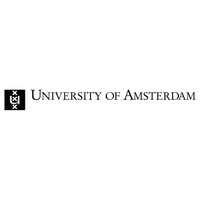PhD Position on Artificial Intelligence for Innovation in Cultural Industries and Science — AcademicTransfer

The Amsterdam Business School (ABS) and the Informatics Institute (IvI) of the University of Amsterdam (UvA) are looking for a PhD candidate in an interdisciplinary ‘Innovation Genome’ project, at the cross-section of computer science and business.
The focus of this project is gaining a fine-grained understanding of the role of influence relations in determining the likelihood of producing (successful) innovations. Not only understanding the features of successful innovations but also the complex flows of information, ideas, and practices surrounding such innovations is paramount to developing proactive approaches for intelligent solutions. We embrace this grand challenge by taking a two-tiered approach to investigating innovations vis-à-vis patterns of influence among individuals and within and across categories to (1) study the effects on competitive dynamics and socio-economic performance over time and (2) identify universal ‘secret ingredients’ successful innovations share. Using categorization as a fundamental theoretical lens, our goal is to analyze and map the so-called innovation genome in the cultural industries (visual arts) and science by extracting, modeling, and interactively visualizing complex traits (e.g., inventions) and patterns of influence.
We aim to develop multimodal geometric deep learning approaches, informed by state-of-the-art business theories, to model actors, innovations, and categories of interest into a joint semantic space. We adopt a visual analytics paradigm for studying the data, deploying our novel, interactive visualization, and interactive (human in the loop) learning tools together with advanced network analysis and time series modelling approaches.
The empirical domains we analyse are science and visual art, both offering large and accessible databases. For instance, publicly available databases of scholarly publications and patents, such as Scopus, Thomson Reuters, and Google Scholar, and large, domain-specific collections of multimedia data, such as WikiArt. These data are suitable to the aims of this project because they not only lend themselves very well to the tools of text, image, and metadata analysis but also are domains in which innovativeness is considered the prime determinant of success, and in which success – in terms of competitive performance – can be readily measured.
The PhD candidate will be employed by the Entrepreneurship & Innovation section of the ABS. The position is part of the University of Amsterdam Data Science Centre (DSC) Interdisciplinary PhD Program. The successful candidate will also spend one day a week working at the DSC, collaborating with a unique network of fellow PhD students, data scientists, engineers, and researchers from across the university.
What are you going to do?
